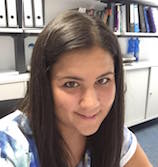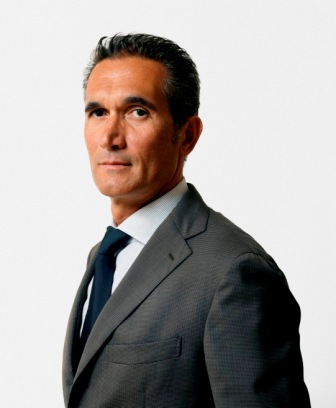Studying at the University of Verona
Here you can find information on the organisational aspects of the Programme, lecture timetables, learning activities and useful contact details for your time at the University, from enrolment to graduation.
Academic calendar
The academic calendar shows the deadlines and scheduled events that are relevant to students, teaching and technical-administrative staff of the University. Public holidays and University closures are also indicated. The academic year normally begins on 1 October each year and ends on 30 September of the following year.
Course calendar
The Academic Calendar sets out the degree programme lecture and exam timetables, as well as the relevant university closure dates..
| Period | From | To |
|---|---|---|
| Primo Semestre Triennali | Sep 18, 2017 | Jan 12, 2018 |
| Secondo Semestre Triennali | Feb 19, 2018 | Jun 1, 2018 |
| Corsi intensivi estivi (Alba di Canazei) | Jul 9, 2018 | Aug 3, 2018 |
| Session | From | To |
|---|---|---|
| Prove Parziali Primo Semestre | Nov 6, 2017 | Nov 10, 2017 |
| Esami Sessione Invernale triennali 2017 | Jan 15, 2018 | Feb 16, 2018 |
| Prove Parziali Secondo Semestre | Apr 9, 2018 | Apr 13, 2018 |
| Esami sessione estiva triennali 2018 | Jun 4, 2018 | Jul 6, 2018 |
| Esami sessione autunnale 2018 | Aug 27, 2018 | Sep 14, 2018 |
| Session | From | To |
|---|---|---|
| Lauree sessione autunnale (validità a.a. 2016/17) | Nov 27, 2017 | Nov 28, 2017 |
| Lauree sessione invernale (validità a.a. 2016/17) | Apr 4, 2018 | Apr 6, 2018 |
| Lauree sessione estiva (validità a.a. 2017/18) | Sep 10, 2018 | Sep 11, 2018 |
| Period | From | To |
|---|---|---|
| Ognissanti | Nov 1, 2017 | Nov 1, 2017 |
| Festa Immacolata Concezione | Dec 8, 2017 | Dec 8, 2017 |
| attività sospese (Natale) | Dec 23, 2017 | Jan 7, 2018 |
| Easter break | Mar 30, 2018 | Apr 3, 2018 |
| Liberation Day | Apr 25, 2018 | Apr 25, 2018 |
| attività sospese (Festa dei lavoratori) | Apr 30, 2018 | Apr 30, 2018 |
| Festa dei lavoratori | May 1, 2018 | May 1, 2018 |
| Festa Patronale | May 21, 2018 | May 21, 2018 |
| attività sospese estive | Aug 6, 2018 | Aug 24, 2018 |
Exam calendar
Exam dates and rounds are managed by the relevant Economics Teaching and Student Services Unit.
To view all the exam sessions available, please use the Exam dashboard on ESSE3.
If you forgot your login details or have problems logging in, please contact the relevant IT HelpDesk, or check the login details recovery web page.
Academic staff
 silvano.corbella@univr.it
silvano.corbella@univr.it
 martina.menon@univr.it
martina.menon@univr.it
Mussini Mauro
 mauro.mussini@univr.it
mauro.mussini@univr.it
 maurizio.pizzamiglio@univr.it
maurizio.pizzamiglio@univr.it
Study Plan
The Study Plan includes all modules, teaching and learning activities that each student will need to undertake during their time at the University.
Please select your Study Plan based on your enrollment year.
1° Year
| Modules | Credits | TAF | SSD |
|---|
2° Year activated in the A.Y. 2018/2019
| Modules | Credits | TAF | SSD |
|---|
3° Year activated in the A.Y. 2019/2020
| Modules | Credits | TAF | SSD |
|---|
| Modules | Credits | TAF | SSD |
|---|
| Modules | Credits | TAF | SSD |
|---|
| Modules | Credits | TAF | SSD |
|---|
| Modules | Credits | TAF | SSD |
|---|
Legend | Type of training activity (TTA)
TAF (Type of Educational Activity) All courses and activities are classified into different types of educational activities, indicated by a letter.
Macroeconomics (2017/2018)
Teaching code
4S00242
Teacher
Coordinator
Credits
9
Language
Italian
Scientific Disciplinary Sector (SSD)
SECS-P/01 - ECONOMICS
Period
Secondo Semestre Triennali dal Feb 19, 2018 al Jun 1, 2018.
Learning outcomes
-- Introdution ––
Modern macroeconomics was born with J.M. Keynes in 1936. His book "The General Theory" recalls the title of Einstein's famous paper. This spirit of emulation inspires an useful parallelism. One could argue that macroeconomics is to economics what cosmology is to physics. It studies the aggregate phenomena of an economic system. It does not inquiry on the infinitely small, such as a single firm or the behaviour of an individual (the field of microeconomics), but it deals with the overall forces of an economic system. Like cosmology, macroeconomics too asks ultimate questions on the “massimi sistemi”. In short, what is made the wealth of a nation, and how much is it, from where does such wealth come from, and where (i.e. to whom) does it end. It is not necessary to be a cosmologist to know that “il sole e le altre stelle” do exist. Equally, one can speak about GDP, aggregate consumption, industrial investment, inflation without knowing the subject matter involved in these phenomena. However, common sense apart, one cannot answer how the PIL is formed, who has produced it, what causes a certain level fo consumption or investment, and what effects they generate, without some training in macroeconomics.
-- First aim––
The first aim of the lectures consists to providing such basic training. The level of exposition will be introductory, but not superficial. Some basic mathematical knowledge is required (mainly on linear functions), since there will be an extensive use of graphics and equations. Three markets, that make up a typical economic system, will be examined in succession: (1) the good market, (2) the financial and monetary market, (3) the labour market. The laws of these three markets will be carefully analyzed, as well as their interactions in determining the economic equilibrium (or disequilibrium) of an economic system.
-- Second aim––
But macroeconomics is not cosmology. If cosmology cannot usually change the phenomena it studies, this is not the case of macroeconomics. Similarly to what happens to other social sciences, macroeconomists aim at knowing the world not just for the sake of knowledge, but also for the sake of improving the world. Coherently, the second aim of these lectures will be to point out the role played by economic policy (in the different markets) in promoting – or where it is already achieved, preserve - an adeguate level of economic wealth.
--Acquired skills--
At the end of the course, the student will be able to read and interpret correctly:
a) At national level: the Accounts tables of Istat, the Outlook documents by the Ministry of Economics and Finance, the ufficial Report and the statical data attachments by the Governor of the Bank of Italy.
b) At international level: the World Development Reports by the World Bank and its dataset of World Development Indicators, the Economic Outlook of the International Monetary Fund and OECD.
A historical and theoretical level, the student will be able to:
c) To classify the different analytic interpretations and the macroeconomic policy within the main schools of economic thought, as they are evolved up to the present.
d) To assess the effectiveness of the various interventions of economic stabilization and stimulus to economic development as compared to the initial empirical and historical conditions of the country under analysis.
Program
Lectures are delivered both in theory (56h) and in practice (24h) through individual and team work. Students will be asked to take weekly exercises and tests, so to assess their progress on the preparation for the final exam. A tutorship (40h) is available for the assessment of the homework, and for its revision. The course has its elearning material publised in the university moodle website.
The main topics that will be addressed are the following:
1. Macroeconomics: History of Economic Thought and Economic History
2. National Accounts and further Empirical Evidence
3. The market of goods
4. The financial and monetary market
5. The IS-LM model
6. Macroeconomics and Economic Policy
7. Economic growth (including Harrod-Domar model)
8. The accumulation of capital and the technical progress
9. The labour market
10. Unemployment and inflation: the Phillips curve
11. The AD-AS equilibrium model
12. The role of expectations and inflationary effects
13. The open economy
Textbook:
**********************
Author(s): Blanchard Olivier, Amighini Alessia, Giavazzi Francesco
Title: Macroeconomia - Una prospettiva europea
ISBN: 9788815252098
Year: 2014
Publisher: Il Mulino
***********************
Solution Manual
***********************
Author(s): David W. Findlay
Title: Esercizi di macroeconomia. Guida allo studio del testo di Olivier Blanchard, Alessia Amighini, Francesco Giavazzi
ISBN: 9788815252272
Year: 2015 (connected with the textbook Blanchard et al. 2014)
Publisher: Il Mulino
**********************
Textbook: what is needed
°°°°°°°°°°°°°°°°°°°°°°°°°°°°°°°°°°°°°°°°°°°°
Textbook basic References (see in the star box the detailed
bibliography):
Blanchard et al. (2014): Chap. 1-13, 15-16, 19-20, 22-23 e 24.
Its Previous editions are also ok: Blanchard et al. (2011) and (2009).
Manual of solutions: Findlay (2015), or Findlay (2011), or (2009) according to the edition of the main textbook.
| Author | Title | Publishing house | Year | ISBN | Notes |
|---|---|---|---|---|---|
| Findlay, David W | Esercizi di Macroeconomia. Guida allo studio del testo di Olivier Blanchard, Alessia Amighini, Francesco Giavazzi | Il Mulino | 2017 | 9788815272003 | |
| Blanchard Olivier, Amighini Alessia, Giavazzi Francesco | Macroeconomia - Una prospettiva europea | Il Mulino | 2014 | 9788815252098 |
Examination Methods
Mid-term exam: Written exam with multiple-choice test and quantitative exercises. The outcome of the mid-term exam will contribute as a "bonus" to determine the mark of the final exam. The latter is the same for all students. Let us define as Part A, the programme included in the mid-term exam. The rule of the "bonus" is the following. For those that have passed both the mid-term and the final exam, the mark of the latter will be computed taken into account the marks of the exercises of the Part A, either of the final exam itself or of the mid-term exam, according to which one is higher for individual argument of Part A. Final exam: Written exam divided in two parts: a)Multiple-choice test (20 questions) b)Numerical exercises (4 exercises). The final exam covers the whole syllabus. Students that have passed the mid-term exam will be assessed as follows. The final mark of the written exam will be the sum of the weighted (35%) mark of the mid-term exam and the wighted (65%) mark of the final exam. Students may renounce the mid-term mark. In that case the assessment will be made only with the final exam. Oral exam for those that have passed the written exam with a mark of 17 or higher. a) Compulsory for those with a mark between 17 and 18 in the written exam. b) Optional for those with a mark of 18 or higher in the written exam. Students that have taken weekly monitored test and exercises can asked a bonus of a maximum of 10% of the mark of the written exam.
STUDENTS WITH 10CFU, 9CFU e 6CFU ENROLLED IN THE PREVIOUS YEARS
From this academic year students from old undergraduate courses, no longer active, should refer to this course. According to the difference of CFU, between the old and the present course, there will be variations (and integrations) of the basic programme.
Type D and Type F activities
| years | Modules | TAF | Teacher |
|---|---|---|---|
| 1° | An Introduction to the History of Economics and Business Economics | D |
Sergio Noto
(Coordinator)
|
Career prospects
Module/Programme news
News for students
There you will find information, resources and services useful during your time at the University (Student’s exam record, your study plan on ESSE3, Distance Learning courses, university email account, office forms, administrative procedures, etc.). You can log into MyUnivr with your GIA login details: only in this way will you be able to receive notification of all the notices from your teachers and your secretariat via email and soon also via the Univr app.
Graduation
List of theses and work experience proposals
| theses proposals | Research area |
|---|---|
| Tesi di laurea - Il credit scoring | Statistics - Foundational and philosophical topics |
| La performance delle imprese che adottano politiche di Corporate Social responsibility | Various topics |
| La previsione della qualita' dei vini: Il caso dell'Amarone | Various topics |
| Proposte di tesi | Various topics |
| Tesi in Macroeconomia | Various topics |
| tesi triennali | Various topics |

 045 802 8495 (VR) -- 0444/393938 (VI)
045 802 8495 (VR) -- 0444/393938 (VI)























